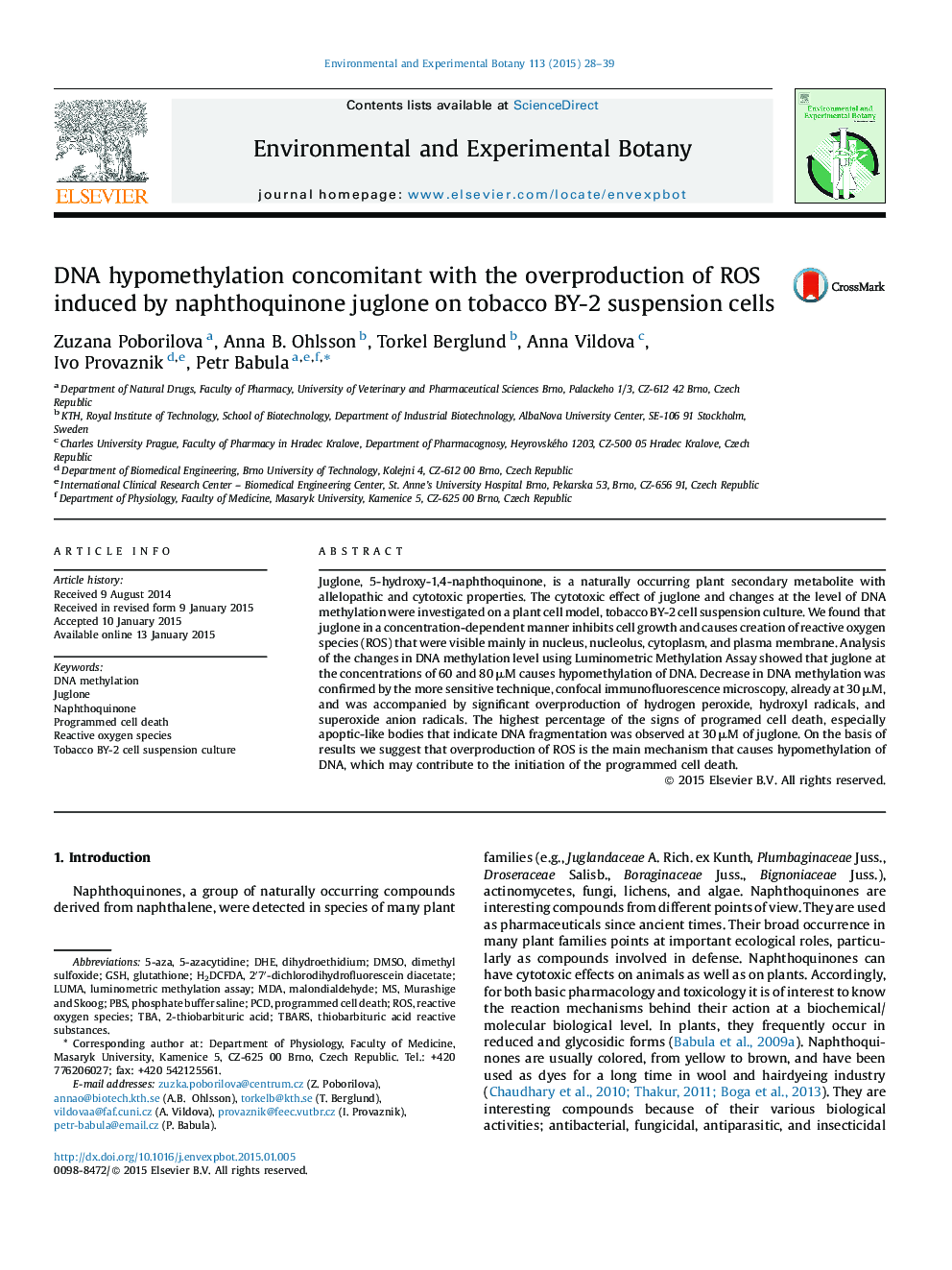| Article ID | Journal | Published Year | Pages | File Type |
|---|---|---|---|---|
| 4554303 | Environmental and Experimental Botany | 2015 | 12 Pages |
•Juglone affects growth of tobacco BY-2 cells.•Cytotoxicity of juglone is caused by ROS overproduction.•Juglone decreases the level of DNA methylation.•ROS overproduction might be the main mechanism inducing hypomethylation of DNA.
Juglone, 5-hydroxy-1,4-naphthoquinone, is a naturally occurring plant secondary metabolite with allelopathic and cytotoxic properties. The cytotoxic effect of juglone and changes at the level of DNA methylation were investigated on a plant cell model, tobacco BY-2 cell suspension culture. We found that juglone in a concentration-dependent manner inhibits cell growth and causes creation of reactive oxygen species (ROS) that were visible mainly in nucleus, nucleolus, cytoplasm, and plasma membrane. Analysis of the changes in DNA methylation level using Luminometric Methylation Assay showed that juglone at the concentrations of 60 and 80 μM causes hypomethylation of DNA. Decrease in DNA methylation was confirmed by the more sensitive technique, confocal immunofluorescence microscopy, already at 30 μM, and was accompanied by significant overproduction of hydrogen peroxide, hydroxyl radicals, and superoxide anion radicals. The highest percentage of the signs of programed cell death, especially apoptic-like bodies that indicate DNA fragmentation was observed at 30 μM of juglone. On the basis of results we suggest that overproduction of ROS is the main mechanism that causes hypomethylation of DNA, which may contribute to the initiation of the programmed cell death.
